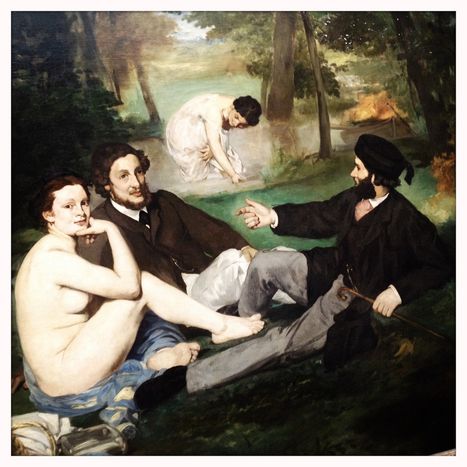
'Bomeur': stay unemployed, stay bourgeois in France
Published on
Translation by:
ClaireWhiteThe crisis gave birth to a flourishing set of neologisms, with one in particular coming out of the French horizon to encapsulate the sense of being unemployed, being inactive and still maintaining a classy way of life. Meet the 'bourgeous unemployed' people of Paris, and their European cousins
The French are very good at spoonerism. This art of deliberate word play, made popular by Boby Lapointe in France, has experienced a new lease of life since 25% of the population have been driven to having nothing else to do with their day but to brighten it with some small linguistic pleasures.
That’s how the French term bomeur was coined. It is a contraction of the French terms bobo (short for a person of 'bohemian bourgeois' background) and chômeur (an unemployed person), thus hinting at a condition of rich people without a job. According to the Les Inrocks magazine, the term came quite incidentally from the mind of 28-year-old Nathanaël. He uploaded a portrait of a bomeur on tumblr and voluntarily proposed the following definition: 'A bomeur is a guy who has a cool job and who, once unemployed, tries to stay cool.'

This individual affected by the crisis is also characterised by his look: mid-length hair, a three-day beard, jeans and of course trainers. Basically, this is a trendy person without any real work to do. But we must understand one thing: nowadays being unemployed doesn’t have any boundaries. The Frenchies aren’t the only ones who have enough time to devote to neology. As the saying goes: the English do it better. In fact, there are a dozen English expressions to describe and bring down the non-worker, including: funemployed, dole dodger (literally a ‘slacker’), moregeoise (those who always want to have more than others) and even neet like nini (people who only eat food that has been produced near the place where they live).
With a respective 52.9% and 25.9% of young people looking for work, Spain and Poland have also begun to respond to a call for such linguistic creations. In Spain, the bomeur is the pijipi – which comes from the Spanish 'words' pijo (posh/rich kid) and jipi (a hippie). In Poland the blue birds or Niebieski ptak is the ‘blue bird’ are flitting about life with not a care in the world. The term doing the rounds with the Germans, who are yet to experience a similar phenomenon with only 8% of young people unemployed, is the joy of laziness. In Germany, those cool people without work are decked with the term Tunix (a ‘crazy-nobody’ mixing the words 'tun' meaning to do and 'nix' meaning nothing), curiously whose Gaulois root is inspired by the comic strip Asterix and Obelix. The Italians know the Engloish word choosy (or demanding) since the welfare minister accused them of harbouring such feelings with that exact term. They also refer to NEET (Not in Education, Employment or Training).
There is no lesser life for a bomeur, as Nathanaël keeps reminding us with his weekly updates on his tumblr page: 'The six to-dos of the Funemployed’. On the menu this week is an exhibition, a football match, a day with the family, a walk, a quick shopping trip and a metre-long pizza. Hard work indeed!
Image: main (cc) potomo/ Michele Solmi/ flickr/ official site; in-text © Henning Studte
Translated from De bomeur de bonne humeur



